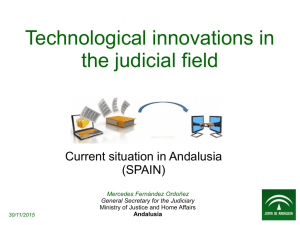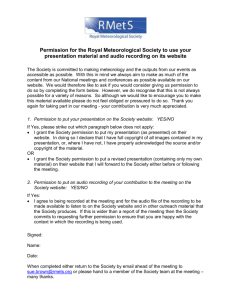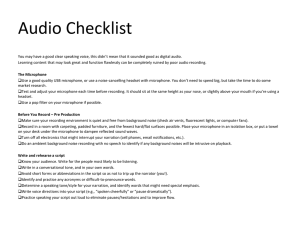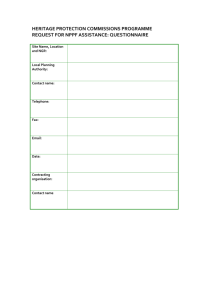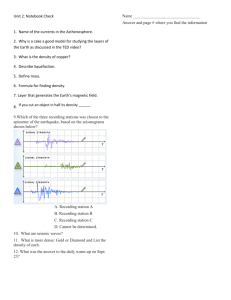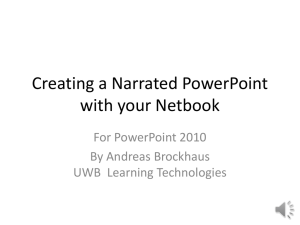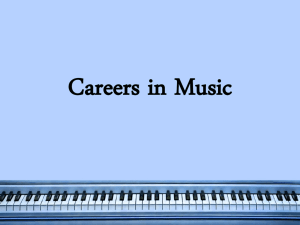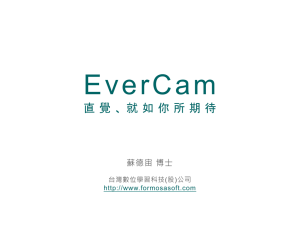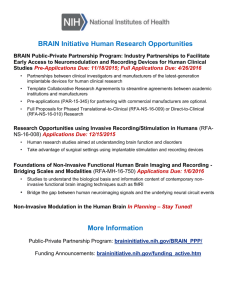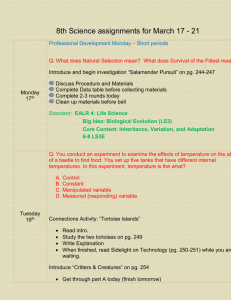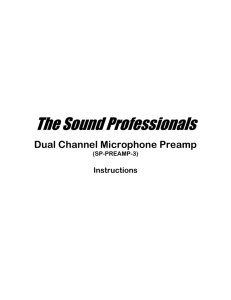Course Syllabus Audio Recording Syllabus_2
advertisement
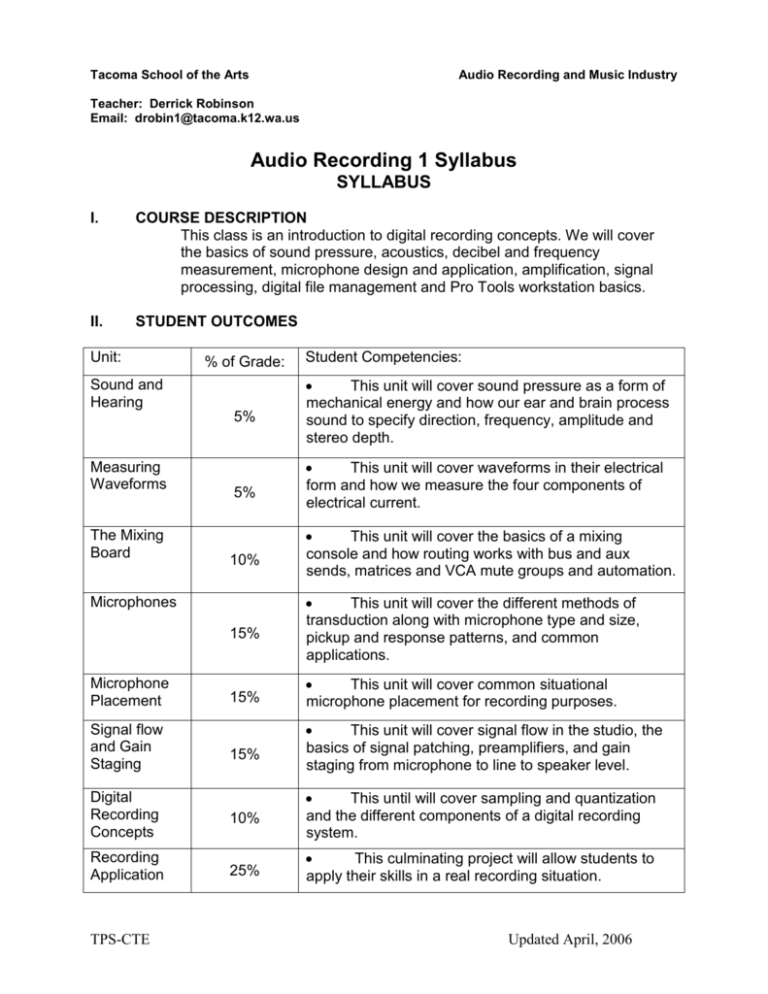
Tacoma School of the Arts Audio Recording and Music Industry Teacher: Derrick Robinson Email: drobin1@tacoma.k12.wa.us Audio Recording 1 Syllabus SYLLABUS I. COURSE DESCRIPTION This class is an introduction to digital recording concepts. We will cover the basics of sound pressure, acoustics, decibel and frequency measurement, microphone design and application, amplification, signal processing, digital file management and Pro Tools workstation basics. II. STUDENT OUTCOMES Unit: % of Grade: Sound and Hearing 5% Measuring Waveforms The Mixing Board 5% 10% Signal flow and Gain Staging This unit will cover sound pressure as a form of mechanical energy and how our ear and brain process sound to specify direction, frequency, amplitude and stereo depth. This unit will cover waveforms in their electrical form and how we measure the four components of electrical current. This unit will cover the basics of a mixing console and how routing works with bus and aux sends, matrices and VCA mute groups and automation. 15% This unit will cover the different methods of transduction along with microphone type and size, pickup and response patterns, and common applications. 15% This unit will cover common situational microphone placement for recording purposes. Microphones Microphone Placement Student Competencies: 15% This unit will cover signal flow in the studio, the basics of signal patching, preamplifiers, and gain staging from microphone to line to speaker level. Digital Recording Concepts 10% This until will cover sampling and quantization and the different components of a digital recording system. Recording Application 25% This culminating project will allow students to apply their skills in a real recording situation. TPS-CTE Updated April, 2006 III. TEXTBOOKS AND MATERIALS REQUIRED IV. V. EALR and GLE ALIGNMENT (this could be a chart): o Communication: EALR 2.2, 3.2 o Writing: EALR 2.1-2.4, 4.1, 4.2 o Arts: EALR 3.1-3.3, 4.1-4.5 INSTRUCTIONAL STRATEGIES: VI. This class will contain elements of lecture, group discussion, individual project and group project work. ASSESSMENT STRATEGIES: VII. You will be required to have a flash drive to store your pro tools projects on to transport between the two studios and the lab. There is an online textbook for reference but most of the information will be taken from notes in class. Students will be assessed in the following areas: o Tests: The first part of this course will be mostly written assessments to assess your basic knowledge of key concepts. As the semester progresses, we will move more into individual and group projects. o Listening Journals: We will do weekly listening journals to practice song and recording analysis and begin to incorporate engineering vocabulary. o In Class Projects: We will be doing more individually directed and group projects towards the end of the semester using the lab and the two studios. o Peer Critique: Each student will be required to participate in an online “blind” peer critique during this course. o Final Project: Students will be working together as a class to record 3 songs towards the end of the semester. Each student will be then be required individually to mix this recording as part of the final project. GRADING SCALE: 94-100 = A 90-93 = A- 87-89 = B+ 84-86 = B 80-83 = B- 77-79 = C+ 74-76 = C 70-73 = C- 67-69 = D+ 60-66 = D < 59 = E VIII. CLASSROOM EXPECTATIONS: Students will be expected to attend class ready to work independently. Unexcused absences will be counted against the participation grade. Students will also be expected to work respectfully with each other, building a safe and positive creative environment. Negative or hostile language will not be tolerated. The four school goals, empathy, balance, community and thinking will be expected to be expressed at all times. I UNDERSTAND AND PERSONALLY AGREE TO PERFORM TO THESE STATED POLICIES. _______________________ Printed Name _____________________________ Student Signature 2 ___________ Date
